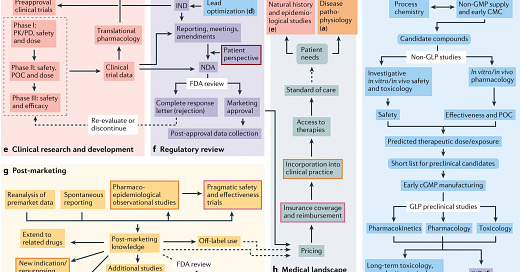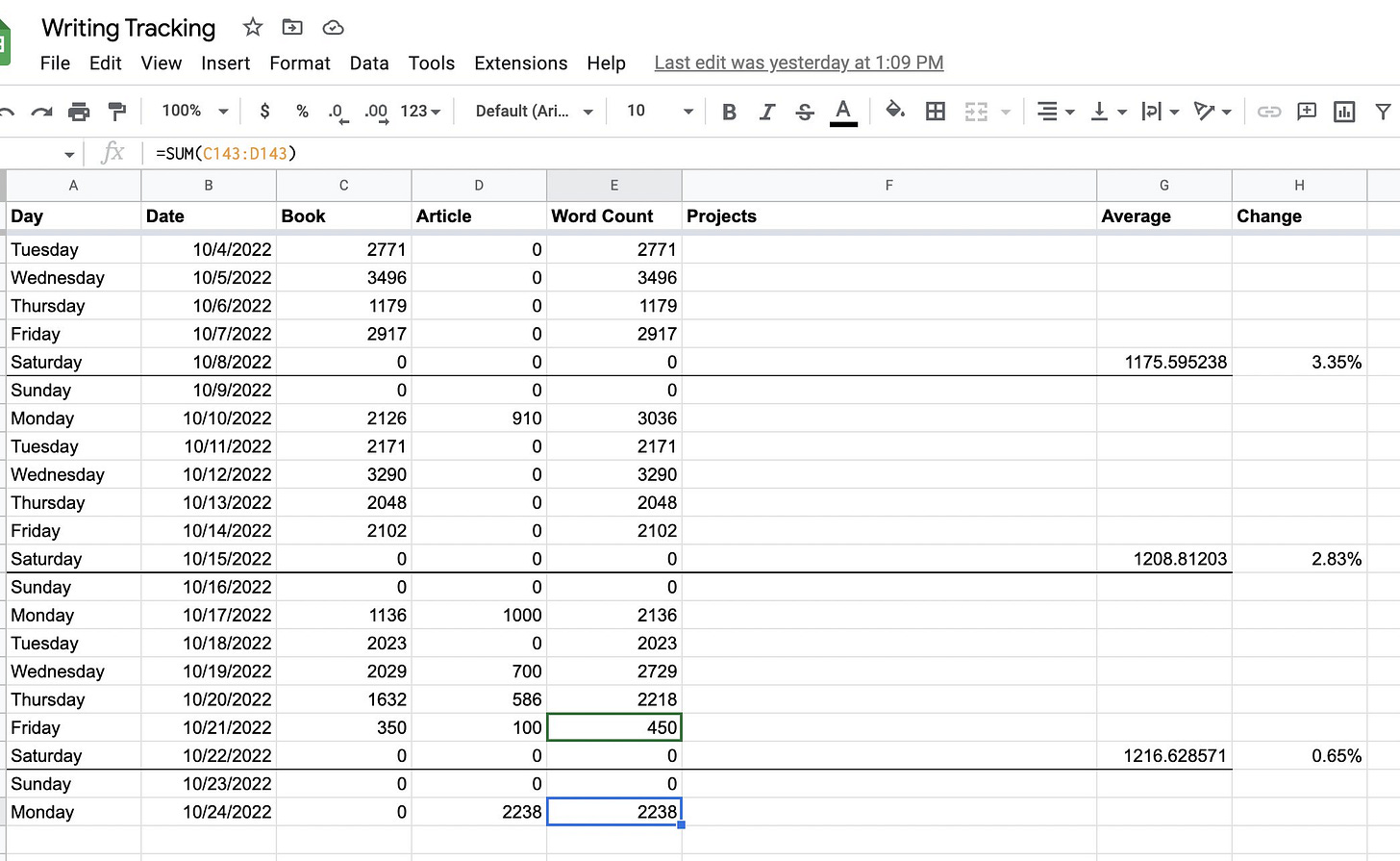81: Tracking Life Metrics ⭐️ + I Got Pneumonia 🫁
Plus things I found on: AI alignment, language learning, drug discovery, prompt engineering and non-fiction writing
Hey friends,
Unfortunately, I managed to get pneumonia this week, and it really wiped me out.
It was quite cool seeing the hospital from a patient's perspective. But the novelty did wear off quite quickly.
The email will be pretty short this week, as I didn't really do much beyond lay in bed watching Quentin Tarantino movies, reading a few articles and listening to a few podcasts.
Here is an eclectic mix of interesting things I found during my illness-induced idleness:
This podcast episode with Eliezer Yudkowsky (on the subject of AI alignment) did the rounds on Twitter this week. Eliezer is someone I’ve followed for a long time and who’s opinion I respect, and he seems to have taken quite a fatalistic view about our approaches and prospects with AI alignment.
I started using a language learning tool LingQ, and honestly it’s pretty great. You can import any foreign language text, and it helps you automatically identify words you do/don’t know, and gradually build up your vocabulary. I’m personally not a big fan of DuoLingo, and see this as a much better alternative.
This map of the drug discovery is from a Nature paper in 2017, but I stumbled across it and found it pretty helpful for reviewing/visualising the drug discovery landscape.
Scott Alexander (from Astral Codex Ten / Slate Stare Codex) is a pretty prolific writer, including around topics like rationality, medicine and research, and I came across his old article on Nonfiction Writing Advice. Pretty good article, and my favourite point was point 9.
I did this Prompt Engineering course because I’m playing around with large language models right now, and generally found it to be a pretty solid, comprehensive (beginner-level) overview. I found the Prompt Hacking section most interesting (which includes methods for defending yourself about prompt hacking).
⏰ Tracking Life Metrics
I made a dashboard in Obsidian while I was doing my 2022 annual review.
The idea is it encodes all my higher-level thinking and strategy (which came out of the annual review) as well the more granular "what am I doing right now" tracking.
One thing I added to the dashboard this week was automatic tracking of a few key "life metrics".
For example, I wrote a python script for tracking number of words written each day, set up a Zapier automation for counting all git commits, and a local javascript query for how much money I’ve earnt so far this month.
My current plan is to see what metrics are genuinely helpful for me, and to start sharing as much of these in public (based on how comfortable I feel).
A shout out to Nat Eliason for the writing dashboard idea:
Hope you had a great week,
Chris
About Me
👋 Hi, I'm Chris Lovejoy.
I'm a medical doctor 🩺 -> machine learning engineer 👨💻 -> start-up founder 💡
I'm on a mission to improve how we manage our health - and share my learnings and experiences here, on my personal website and on YouTube.
I also throw in my favourite things from the internet, and the occasional joke (humour is work-in-progress).




